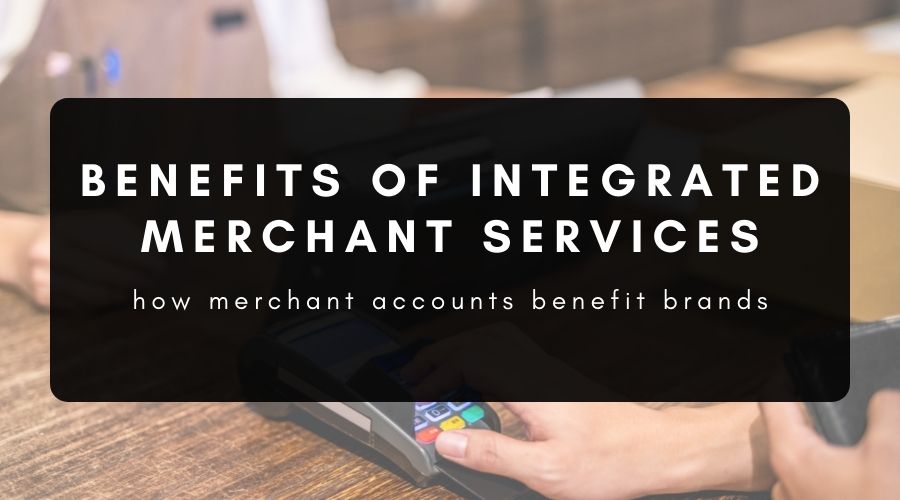
The Benefits of Integrated Merchant Services
The term “integrated merchant services” can carry multiple meanings. Often, it’s used to describe merchant services that are linked to a company’s accounting software and other financial systems. But the term can also carry a broader and even more significant meaning.
If your merchant services are truly integrated, they should work fluidly with every digital aspect of your business, from your financials to your web hosting software. This kind of synergy can be invaluable for your operation.
Types of Merchant Services Integrations
When your payment processing services are integrated, it means they’re connected.
- Connected to your payment gateway
- Connected to your shopping cart platform
- Connected to your accounting software
- Connected to your CRM platform, project management systems, and everything else that keeps your business afloat.
When you have integrated payment systems, there is less labour required, less potential for error, and a more productive workflow for all users in your organisation. Your daily goals are always within reach.
Integrating With a Payment Gateway
Your merchant services and payment gateway must be integrated; there’s no two ways about it. All payments are routed through the gateway and approved by your merchant account provider. It can be a challenge to stay up and running, though, when your merchant services and payment gateway come from two different providers.
There is an easy way to avoid the complexities involved with these integrations. Work with an integrated payment processor like Unicorn Group that offers a payment gateway and merchant services under a single umbrella. You never have to worry about compatibility issues, and you always know exactly who to contact if you require technical support. Best of all, the integration is usually automatic.
Integrating With Shopping Cart Platforms
Whether you use a shopping cart platform or custom build for your web store, you want to integrate your merchant account so that customers can pay for their goods without leaving your website.
It is possible to accept credit card payments (as well as debit cards, gift cards, and other payment methods) without integrating your merchant services into your shopping cart, but it’s not the best way to go. For these types of credit card transactions, you would generally use a hosted gateway. The customer is redirected to a third-party website during the checkout process and then redirected back to your website when the transaction is complete. The problem is that this results in a longer, more complex checkout process, which will cost you some customers in the process.
The good news is that there are a lot of integration-friendly shopping carts out there, including BigCommerce, Magento, Shopify, WooCommerce, and Zen Cart. To complete the integration, your merchant account provider will usually provide you with a piece of code or an API that you would place into your source code. Then you can process payments almost immediately.
Work with a company that offers guided setup assistance, and they can get you up and running in no time. Unicorn Group offers free integration support, and our RESTful API and ready-built modules often eliminate the need for coding altogether.
Integrating With Business & Accounting Software
If your business handles high transaction volumes, it’s imperative that you integrate your merchant services with your financial systems.
The only alternative is to process your credit card information, gather your receipts and invoices, and manually record your payment information into your ledger. Then you have to meticulously check everything to ensure the numbers match. Not only is this type of manual entry time-consuming, but it presents a high likelihood of error.
When you integrate your merchant services into your accounting software, the numbers automatically carry over. You still have to keep an eye on your books, but most of the data entry is done for you. The good news is that most accounting programs—including QuickBooks, NetSuite, Microsoft Dynamics, and FreshBooks—are integration-friendly.
Some accounting programs make this easier than others. For example, NetSuite has an Integrations page where you can download the necessary integration for any of the company’s merchant services partners. Then just manage your customer information from your payment dashboard.
Other programs, like QuickBooks make the process a little more complex. Unless you’re using QuickBooks’ own merchant service, you’ll generally need to contact the company to get set up with your merchant services.
Other integration-friendly software includes CRM platforms, ERP platforms, and payroll software. Whatever platform you’re trying to access for integrated payment processing, your merchant services provider can usually assist with the process.
How to Integrate Your Merchant Services
The benefits of integrated payments are myriad: you spend less time and money, experience fewer errors, and achieve a more streamlined online sales experience. Everything becomes easier, from tracking mobile payments to transferring your funds between banks. Your customers will also enjoy greater cardholder security.
The actual process of integrating your merchant services will depend on the merchant provider and the software you’re integrating, but your merchant provider should be able to walk you through it step by step.
Integrate your merchant services with any software that will allow it. Even if the setup takes a bit of time, the integration will pay for itself many times over.
Published: August 11, 2021
Last updated: January 30, 2026

